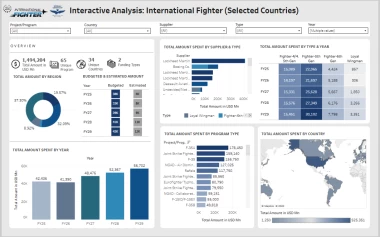Steadfast against North Korean Brinkmanship
Add bookmark
North Korea's Recent Nuclear Strategy
North Korea launched several unidentified projectiles for two weeks in a row into the east coast waters between Japan and the Korean Peninsula. These launches come after a nearly two month hiatus in similar provocations by the hermit kingdom. North Korea test-fired missiles 13 times last year amidst stalled talks with the United States. This, despite the amicable relationship between President Trump and the reclusive state’s leader, Kim, Jong-un. It seems that Pyongyang continues to be irked with Washington and this has the potential to entirely derail the diplomatic progress previously shaped by two leaders.
Denuclearization dialogues between the two countries collapsed after the U.S. declined North Korea’s request to lift sanctions in exchange for partial forfeit of its nuclear arms last February in Hanoi, Vietnam. The unfinished nuclear negotiations – portrayed as hostile policies and one-sided demands from Washington – instigated Pyongyang to conduct short-range missile tests, embarrassing the Trump administration since the failed summit.
The Strategic Dialogue
In order to salvage the ongoing negotiations Washington could propose mutually acceptable conditions instead of unilateral disarmament demands. Nevertheless, instead of responding hastily, the U.S. policymakers should question the authenticity of these ballistic missile launches. Washington cannot fall for Pyongyang’s repeated antics as the rhetoric is for their populace rather than to intimidate the U.S.
North Korea certainly has the means necessary to launch intercontinental ballistic missiles (ICBMs) and nuclear arsenals against its neighbors or the U.S. Notwithstanding, the international community understands how this story will unfold. Pyongyang will never deploy weapons as a nuclear war with Washington represents the annihilation of Kim, Jong-un’s regime. Moreover, a North Korean pledge of disarmament represents a complete denuclearization on the Korean Peninsula - a near impossible strategic end.
Surely, Kim, Jong-un will not jeopardize his dictatorship and will avoid a pre-emptive military strike from the U.S. at all costs, an action that would result in potential regime collapse. The inevitable outcome contradicts Kim’s ultimate aspiration, which is complete control of North Korea and survival of his regime. Therefore, underneath the persistent hostile connotations, Kim comprehends that such actions would endanger his supremacy.
With the aforementioned considered, threatening the U.S. would not serve any of North Korea’s interests, but an aggressive posture does. Pundits postulate that isolated and impoverished nuclear-armed North Korea would always endure, but not collapse.
Moreover, they surmise that Pyongyang will continue its provocative means by conducting further nuclear tests or a limited but deadly attack against its southern neighbor on the peninsula. Kim withheld from firing the ICBM that are particularly worrying to the U.S. intelligence committee. In short, Kim’s temperament is rational and calculated.
The Way Ahead
North Korea will continue to use the same playbook, and it seems the U.S is likely to compromise now and, in the years, to come. With that being said, Pyongyang’s nuclear brinkmanship is yet a tool to bring Washington to the bargaining table to achieve concessions. Instead of falling into the same trickery, the Trump administration should maintain existing sanctions. These stringent measures impede the North Korea’s annual export revenue and disrupt its ability to raise money for its weapons programs.
North Korea has always acted as if their belligerent rhetoric is a prelude for launching a nuclear strike against the U.S. or its closest Northeast Allies: Japan and the Republic of Korea. Nonetheless, in reality, it is to generate extreme anti-Western sentiment and Washington policymakers should not fall for such deceptive ploy.
The views expressed are the author’s and do not reflect the position of the U.S. Army, the Department of Defense, or the U.S. Government.



























